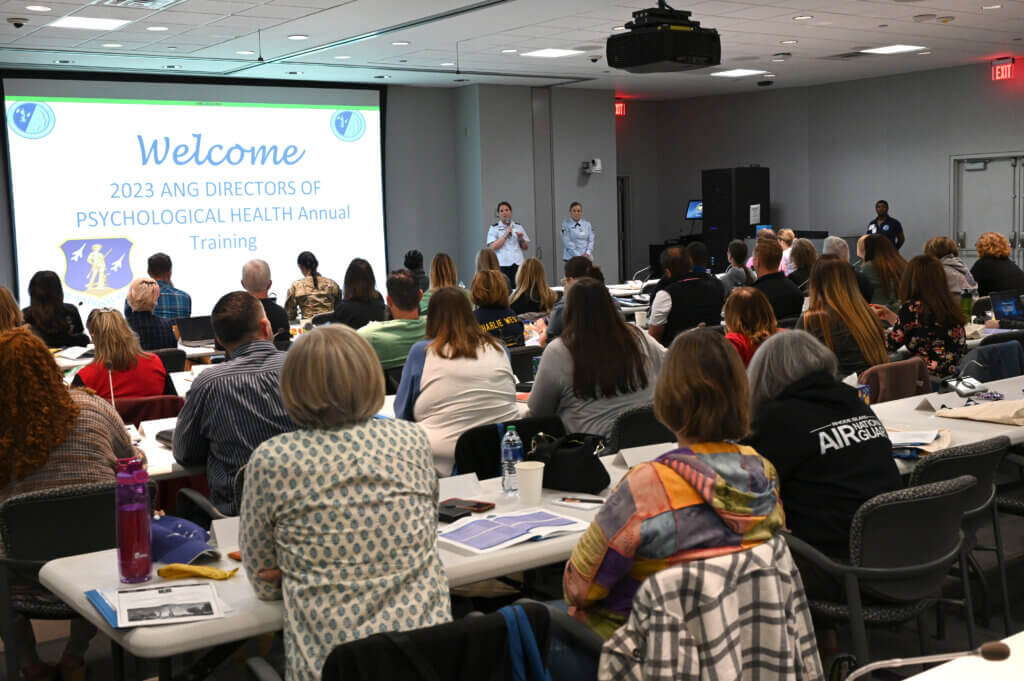ARLINGTON, Va. – More than 75 Air National Guard directors of psychological health focused on best practices, trends and changes to psychological health needs for Guard Airmen at a workshop April 24-28.
“The Air National Guard Psychological Health Program is a critical part of caring for our Airmen and their needs,” said Col. Linda A. Rohatsch, ANG Medical Service and Office of the Air Surgeon director. “Our DPHs ensure and enhance mission readiness across the 90 wings by promoting readiness through prevention, outreach and resilience strategies.”
Incorporating a holistic approach to wellness, the National Guard promotes behavioral health self-care by strengthening the psychological health needed to improve readiness.
“In 2022, directors of psychological health across 90 wings reported 109,000 in-person encounters with service members and their families,” said Bonnie Schultz, chief of the ANG psychological health program. “During this time, we also provided mental health briefings for 126,000 service members.”
In 2022, the Air National Guard saw the lowest suicide death rate since the program’s inception in fiscal year 2015, with a 20% decrease from the previous year. Through intervention, DPHs also reported 342 saves from Airmen who expressed suicidal ideation.
During the workshop, leaders discussed behavioral health, trauma-informed care and preventing substance abuse. The workshop also focused on treatment methods and other tools to promote psychological health.
“Everything is about readiness and our professionals ensure Guard members are psychologically fit to deploy,” said Schultz. “We have to make sure DPHs understand their parameters and have the tools, such as trauma-informed care or ethics training in trauma, to be successful.”
The top five trending issues reported by Airmen were anxiety, job stressors, relationship issues, depression and sleep problems.
The workshop provided opportunities for DPHs to network with other professionals to discuss solutions for complex issues facing Guard members in their states.
“The primary benefit for coming here has been to solidify the crucial relationships with my colleagues in other wings,” said Ted Burgess, the DPH for the Idaho National Guard’s 124th Fighter Wing. “This training also provided clarification regarding interfacing with others about a member’s care and better understanding their administrative rights as they go through duty-limiting conditions.
“This training has been incredibly effective in helping me align with National Guard priorities,” he added.
Rohatsch said stronger DPHs increase resilience and help prepare Airmen for future missions.
“Mental health is about readiness,” she said. “Without clear mental health, we can’t accomplish our mission.”

